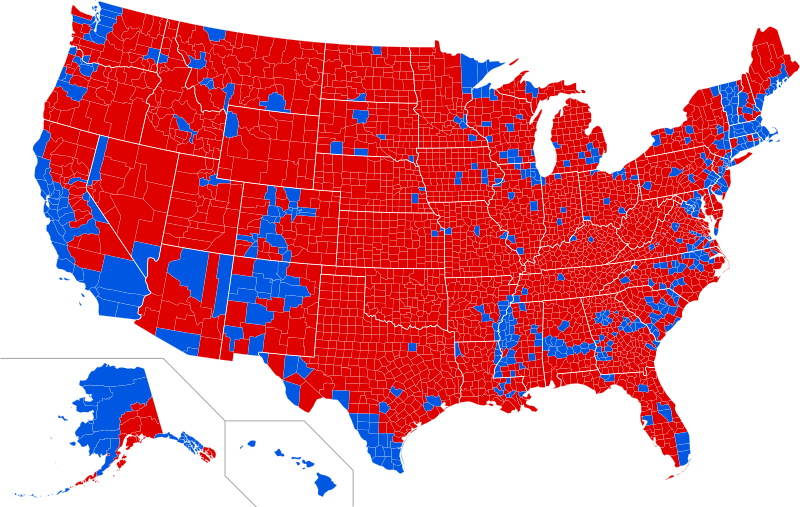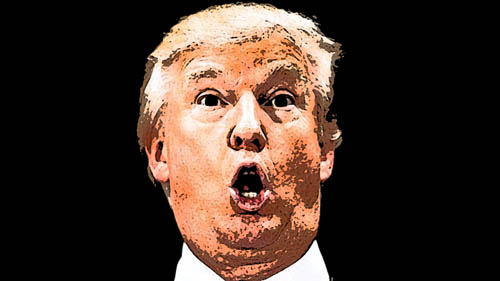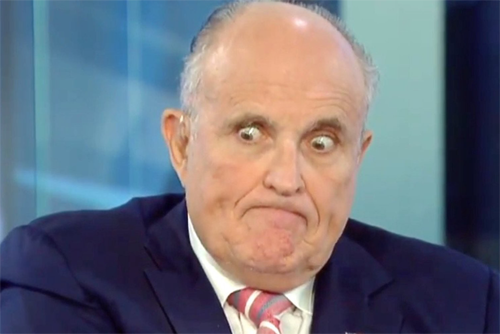Since the 2016 election the Left has argued with itself about whether the obstinate ignorance of Trump voters is rooted in racism or in economic anxiety. I’ve been saying all along that it’s both, and that while there’s not much one can do about the racism, the party needs to address the economic anxiety. I’ve found some new ammunition for my position.
Thomas B. Edsall writes in the New York Times that there is a very strong correlation between districts flipping from Democratic to Republican and districts experiencing economic erosion, and vice versa. Parts of the country doing well economically are safe for Democrats. Parts of the country where incomes are stagnant and jobs are scarcer than they used to be get redder and redder.
Candidates on the right do best during hard times and in recent elections, they have gained the most politically in regions experiencing the sharpest downturn. Electorally speaking, in other words, Republicans profit from economic stagnation and decline.
Let’s return to John Austin of the Michigan Economic Center. In an email he describes this unusual situation succinctly: “A rising economic tide tends to sink the Trump tugboat,” adding
“Certainly more people and communities that are feeling abandoned, not part of a vibrant economy means more fertile ground for the resentment politics and ‘blaming others’ for people’s woes (like immigrants and people of color) that fuel Trump’s supporters.”
In June 2017, Austin demonstrated the importance of struggling white communities to the Republican Party. His study of the 2016 presidential results in the Midwest showed how strong turnout among voters in regions facing economic deterioration can help Republicans.
In other countries there are similar correlations between people who have suffered under austerity policies and a resurgence of right-wing populism. In other words, if you want people to not become klansmen and nazis, think about how the economy is working for working-class folks.
The arguments denying that economic anxiety have anything to do with the reddening of America usually are based on the fact that in 2016 Trump voters had a higher median income than Clinton voters. But Clinton got 91 percent of the African American vote and 66 percent of the Latino vote. She also got a higher percentage of women, including 98 percent of black women. White men enjoy a higher median income even if they live in poor precincts. It’s also the case that the people who voted in those poor districts represented the upper incomes in their districts. This is why places that backed Trump skewed poor; voters who backed Trump skewed wealthier.
See Robert Reich, Democrats once represented the working class. Not any more. That’s why there’s so much red on the map.
The current issue of Washington Monthly is dedicated to taking back the map. This is something Democrats must do, whether they like it or not, if they are ever to dominate national politics and policy once again. (Although you would be surprised at how many Dems I’ve run into who think it’s perfectly fine that the party has been shut out of large sections of the country.) I especially want to recommend Paul Glastris, Check Your Coastal Urban Privilege.
I’d like to extend McIntosh’s concept to another form of unearned advantage: the economic opportunities enjoyed by residents of a handful of the nation’s largest and wealthiest coastal metropolitan areas. Cities like San Francisco, New York, and Washington, D.C., and their suburbs, have raced ahead of most of the rest of the country in recent decades. But the well-educated liberals who most benefit from all this economic growth—the same people who are most likely to be woke to privilege in other contexts—don’t seem to recognize that a substantial portion of the gains are unearned, ill-gotten, and coming at someone else’s expense.
Put simply, these big liberal metro areas aren’t thriving simply because they’re liberal, or educated, or “innovative”; they’re doing so in large part thanks to federal policies that allow them to suck up more than their fair share of the nation’s wealth. Since 1980, the gap between the per capita income in the wealthiest 10 percent of metro areas and the poorest 10 percent has grown by 21 percent. The contrast with rural America is even starker. As recently as twenty years ago, sparsely populated counties were doing fine; in fact, during the first four years of the 1990s boom, their rates of business start-ups and employment growth exceeded those of the big cities. But their economies collapsed during the 2008 recession and have not recovered, even as the largest metro areas have flourished. …
…This magazine has long made the argument–advanced in this issue in twin cover stories by Daniel Block and Claire Kelloway–that the migration of wealth and opportunity to a handful of coastal metro areas is not primarily the consequence of inevitable market forces, but of policy choices made in Washington. Beginning in the 1970s, and with accelerating force in the 1980s, elected officials dismantled a set of rules that for decades had allowed all parts of the country to compete on a level playing field. These included safeguards for local banks and retailers, regulations that kept the costs of air travel relatively uniform throughout the country, and strict enforcement of federal antitrust laws.
And, of course, under Trump this trend has continued, and the economies of rural and former rust belt areas that voted for Trump have gotten worse. Although I am loathe to attribute any effect of Trump to any sort of intention, one does wonder (as Edsall speculates) if Republicans are trying to kill the economy deliberately to maintain their own power.
See Nancy LeTourneau, Coal Country Is Dying. All Trump Has Are Lies. and What Happens When a Metropolitan Area Shares the Wealth.
This is a complex issue that Democrats cannot ignore.







